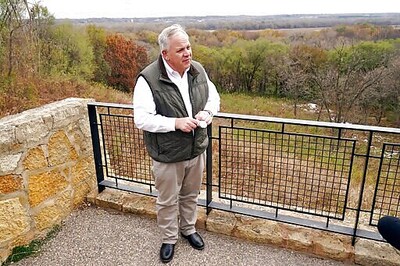
views
After the auto sector’s and health care industries’ wish list from the Finance Minister for Budget 2008, it’s time to put the spotlight on the demands of the telecom sector - what needs to be done to promote mergers and acquisitions to keep the dollars coming in and what needs to be done on the telecom front to keep the sector ringing.
It is one of the hottest sectors, one of the fastest growing sectors of the Indian economy.
India has emerged as one of the fastest growing telecom markets in the world with over seven million subscribers being added every month. India’s current subscriber base is of over 250 million and the half billion mark is expected to be touched by 2010.
There is a large network of optical fibre cables, digital microwave and satellite communication systems.
A very strong industrial base has been built in the telecom sector with a large number of national and multinational telecom companies like Vodafone, Bharti Airtel as well as the government-owned, BSNL and MTNL.
With the announcement of a new telecom policy in 1999, the effort was to develop telecom facilities in rural India and make it available to the masses at affordable costs.
Communications & IT Minister Andi Muthu Raja said, “In the three and a half years alone, we have commitments above $20 billion in IT and telecom services by 2010. In the telecom manufacturing itself, there has been a commitment of more than $2 billion and we expect the first commitment above another $2 billion in next one year."
Akhil Gupta, Joint MD & Group Director, Strategy & Business Development, Bharti Airtel said, “We expect very expensive rollouts in the next coming few years, whereby we can take mobile telephony to every nook and corner of this country.”
Bharat Bhatia, Regional Director, Motorola India said, “We really need to have huge manufacturing facilities like you can see today Nokia and Motorola setting up in Sriperumbudur near Chennai, you need to replicate that all over the country.”
Arpita Pal Agrawal, Associate Director & Telecom Analyst, PwC said, “Mandated sharing of infrastructure, maybe active infrastructure sharing if it works, technologically going to fill in the issues, so I think those are the areas that need to be focused on.”
Bill Gajda, Chief Commercial Officer, GSMA said, “One of the things we were trying to look at what we call hub services. We set up one operator and content providers, we keep the hub and have many operators, have more standardized financial arrangements that would provide scale, we will see it take off.”
But the government still needs to simplify the tax structure to make the environment more conducive.
Finance Minister P Chidambaram has said, “The telecommunications industry has repeatedly requested for the multifarious taxes, charges and fees applicable to the industry to be unified and a single levy on revenue to be collective. The request merits consideration, hence I propose to request the Department of Telecommunications to constitute a committee to study the present structure of levies and make suitable recommendations to the government.”
PAGE_BREAK
Spice Group Head-Operations Dilip Modi said, “My expectations from the upcoming Budget for the telecom sector is a more simplified tax regime with an overall reduction in taxes close to 6% of revenues.
Spice Telecom may not be the largest telecom company in the country, but it sure was the first to dial into the telecom revolution way back in 1995.
Spice currently authors GSM services in Karnataka and Punjab to about four million subscribers.
The company is now all set to embark on the expansion spree with the Department of Telecommunication giving a go-ahead for a foray into four more circles.
This could well catapult Spice to the top five in the GSM league. The company already has a strategic partnership with Telecom Malaysia with the Malaysian giant holding 39% equity in the company. But the spectrum bottleneck remains the only big concern.
“There are issues around how much spectrum, which will be released by the Department of Defense. How much spectrum will be allocated per operator, will it be 4.4 MHz, will it be 6.2 MHz, there are players saying the existing players with growing subscriber base should be given priority. So I guess there are many issues and it just makes it very challenging to predict anything in this environment. It is all about saying that we hope that the right thing will happen,” Modi added.
One of the group’s businesses is hot spot retail. In the process of opening up 400 outlets across India, it is the one stop shop for cell phones and other accessories.
And on sale are Spice’s own handsets with the popular GSM and CDMA dual phone. With newer products in the pipeline, Dilip Modi is looking toward the government to make this possible through import duty cuts on components. So Spice can make a phone for the masses.
Modi said, “What is important is that it needs some mindsets in the ecosystem. We have just had Mr Ratan Tata come and say ‘I am offering the country a People’s Car, a one lakh rupee car and a promise is a promise. So forget the cost structure, this is what the country needs and we are going to make it happen’. So I think it needs that mindset from the sector to say that we need Rs 500 mobile phone.
In the communications space, Spice latest entered a business process outsourcing market in 2005. Spice BPO is a voice-based operation, which hires nearly 6,500 people across ten different locations and fourteen offices in India.
While growing the BPO network, Dilip wants his telecom network to also grow by implementing last year’s unfinished plan of a unified tax regime. That demand, make no mistake, will be there in a wish list of every telecom CEO.















Comments
0 comment